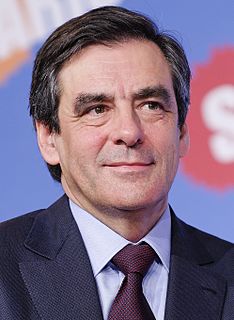The Labour Party is a social-democratic political party in the Republic of Ireland. Founded in 1912 in Clonmel, County Tipperary, by James Larkin, James Connolly, and William X. O'Brien as the political wing of the Irish Trades Union Congress, it describes itself as a "democratic socialist party" in its constitution. Labour continues to be the political arm of the Irish trade union and labour movement and seeks to represent workers interests in the Dáil and on a local level.
Elections in Greece gives information on elections and election results in Greece.

The Mouvement Militant Mauricien (MMM) is a left-wing socialist political party in Mauritius. The party was formed by a group of students in the late 1960s. The MMM advocates what it sees as a "fairer" society, without discrimination on the basis of social class, race, community, caste, religion, gender or sexual orientation.

Elections in Benin take place within the framework of a multi-party democracy and a presidential system. Both the President and the National Assembly are directly elected by voters, with elections organised by the Autonomous National Electoral Commission (CENA).

Elections in Cyprus gives information on election and election results in Cyprus.
Elections in Hungary are held at two levels: general elections to elect the members of the National Assembly and local elections to elect local authorities. European Parliament elections are also held every 5 years.

The National Democratic Party, often simply called in Arabic: الحزب الوطني Al-Ḥizb al-Waṭaniy – the "National Party", was an Egyptian political party. It was founded by President Anwar El Sadat in 1978.

Parliamentary elections were held in Hungary on 9 April 2006, with a second round of voting in 110 of the 176 single-member constituencies on 23 April. The Hungarian Socialist Party emerged as the largest party in the National Assembly with 186 of the 386 seats, and continued the coalition government with the Alliance of Free Democrats. It marked the first time a government had been re-elected since the end of Communist rule.

The French legislative elections took place on 10 June and 17 June 2007 to elect the 13th National Assembly of the Fifth Republic, a few weeks after the French presidential election run-off on 6 May. 7,639 candidates stood for 577 seats, including France's overseas possessions. Early first-round results projected a large majority for President Nicolas Sarkozy's UMP and its allies; however, second-round results showed a closer race and a stronger left. Nevertheless, the right retained its majority from 2002 despite losing some 40 seats to the Socialists.

The Social Democratic League was a socialist political party in the Netherlands. Founded in 1881, the SDB was the first socialist party to enter the House of Representatives.

The 1919 legislative election, the first election held after World War I, was held on 16 and 30 November 1919.
Parliamentary elections were held in North Korea on 12 December 1972. Only one candidate was presented in each constituency, all of which were selected by the Workers' Party of Korea, although some ran under the banner of other parties or state organisations to give an appearance of democracy. Voter turnout was reported to be 100%, with 100% voting in favour of the candidates presented.

Trade Unionist and Socialist Coalition (TUSC) is a socialist electoral alliance launched in Britain for the 2010 general election.
Parliamentary elections were held in the United Arab Republic on 8 January 1969, with a second round in 13 constituencies on 13 January. At the time the country was a one-party state and all candidates had to be members of the Arab Socialist Union (ASU). Two candidates were elected from each of the 175 constituencies, with a second round of voting required if one or both of the candidates failed to win over 50% of the vote in the first round, or neither of the candidates with over 50% were classed as a worker or farmer.
Early parliamentary elections were held in Egypt on 27 October 1971, with a second round for 141 seats taking place on 3 November, following the adoption of a new constitution in September 1971. At the time the country was a one-party state and all candidates had to be members of the Arab Socialist Union (ASU). Two candidates were elected from each of the 175 constituencies, with a second round of voting required if one or both of the candidates failed to win over 50% of the vote in the first round, or neither of the candidates with over 50% were classed as a worker or farmer. In total, 1,661 candidates contested the elections.
Early parliamentary elections were held in Egypt on 7 June 1979, with a second round for 147 seats being held on 14 June. Following the experimental 1976 elections, in which three different factions of the Arab Socialist Union had competed against each other, the country had returned to multi-party politics. This was confirmed in a referendum on the formation of new parties held in April.

Legislative elections took place on 10 and 17 June 2012 to select the members of the 14th National Assembly of the French Fifth Republic – a little over a month after the French presidential election run-off held on 6 May.

The constituencies for French residents overseas are eleven French constituencies, each electing one representative to the National Assembly.

Shura Council elections were held in Egypt between 29 January and 22 February 2012. The Freedom and Justice Party emerged as the largest party in the Council, winning 105 of the 180 elected seats.

The Socialist Party is a Trotskyist political party in England and Wales which adopted its current name in 1997 after being formerly known as Militant, an entryist group in the Labour Party from 1964 until it abandoned that tactic in 1991. The party stands under the electoral banner of the Trade Unionist and Socialist Coalition (TUSC).
















